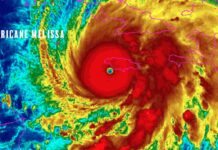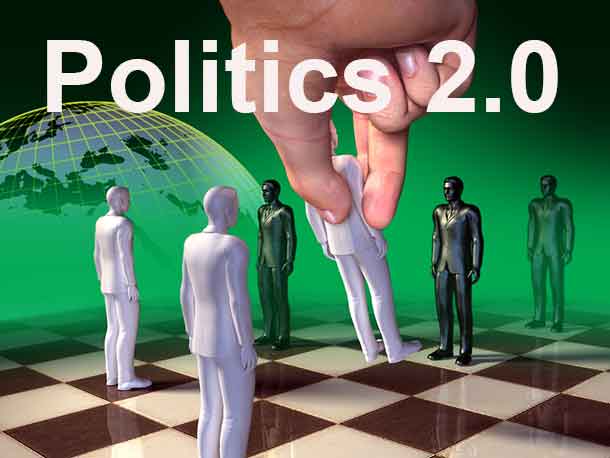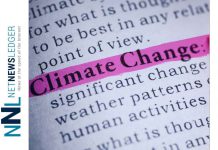By Tom Harris
OTTAWA – OPINION – Imagine that a public opinion poll were conducted asking: “Do you support allowing criminal aliens into Canada?”
Imagine also that the results of this survey were cited as an indicator of the receptiveness of Canadians to immigrants.
Most people would, rightly so, condemn the question as ‘leading,’ in other words, worded in a way that would encourage a specific answer. They would also criticize the inappropriate use of the poll results.
But when it comes to climate change surveys, most people, even major press outlets, are blind to such problems.
For example, concerning the Mainstreet/Postmedia survey released on October 31, CTV News Winnipeg proclaimed, “Carbon pricing plan approved by over half of Canadians, poll finds.” Others did the same, reporting, without critique, the president of Mainstreet Research’s assertion that, “A majority of Canadians approve of the federal government’s decision to impose a price on carbon pollution.”
But the survey results are unreliable. Here is the first question:
“The federal government recently announced that all provinces must price carbon pollution, through a carbon tax or cap-and-trade system [,] or it will price carbon in provinces who [sic] don’t price carbon through it’s [sic] own plan. Do you approve or disapprove of this initiative?”
Besides the grammatical mistakes, the question wrongly identifies carbon dioxide (CO2), the primary target of the government’s emission reduction plans, as “carbon pollution.” Grade school students know that CO2 is not pollution. It is the stuff of life, an essential reactant in plant photosynthesis on which all life on Earth depends.
That’s why commercial greenhouse operators routinely run their internal atmospheres at up to 1,500 parts per million CO2 concentration. Plants inside grow far more efficiently than at the 400 ppm in the outside atmosphere.
Biological Impacts, a report from the Nongovernmental International Panel on Climate Change, cites over 1,000 peer-reviewed studies that document rising productivity of forests and grasslands as CO2 levels have increased, not just in recent decades, but in past centuries.
Regardless of its role in climate change, a topic of intense debate in the science community, increasing CO2 levels pose no direct hazard to human health. CO2 concentrations in submarines can reach levels well above 10,000 ppm, 25 times current atmospheric levels, with no harmful effects on the crew.
This is more than an academic point. It is an example of how misleading language has distorted the climate debate. By calling CO2 “carbon,” Mainstreet/Postmedia pollsters encouraged respondents to think of it as something dirty, like graphite or soot, which really are carbon. Adding on the word ‘pollution’ bolstered this misconception further.
Ordinarily, most poll respondents would have had a natural predisposition to agree that, yes, “carbon pollution” should be priced. Yet, even with the question’s bias, only 21% of respondents “strongly approved” of the government’s plans, while 30% “somewhat approved.” Fully 49% of Canadians “strongly disapproved,” “somewhat disapproved,” or were “not sure.” Opposition to the government’s CO2 pricing plans would almost certainly have been higher still had the question been asked without the pro-pricing bias.
The second question in the survey was even worse:
“*Province Name* currently does not have a system to price carbon pollution. The federal government has said they will introduce a system in provinces who do not have their own system by 2018. Do you believe the provincial government should introduce its own carbon pricing system or should it let the federal government introduce a carbon pricing system?”
Respondents were asked to chose between:
“Province Should Introduce Its Own Carbon Pricing System.”
“Province Should Let The Federal Government Introduce a Carbon Pricing System.”
“Not Sure.”
This is akin to asking if people want to hung or shot. What if a respondent wants no CO2 pricing at all? They cannot answer the question.
It is only a matter of time before politicians use the new Mainstreet/Postmedia poll results to bolster their agendas. After all, immediately following the last misleading climate poll, that of Nanos Research on October 3, Federal Environment Minister Catherine McKenna told CBC Radio, “we saw a poll yesterday where the majority of Canadians have said it’s time to take to put a price on pollution.”
Pollsters must start asking honest questions about issues that actually matter, the most obvious being, “How much would you prepared to pay to reduce Canada’s carbon dioxide emissions?”
For many people, it would be nothing at all.
__________________________________________
Tom Harris is executive director of the Ottawa-based International Climate Science Coalition.







